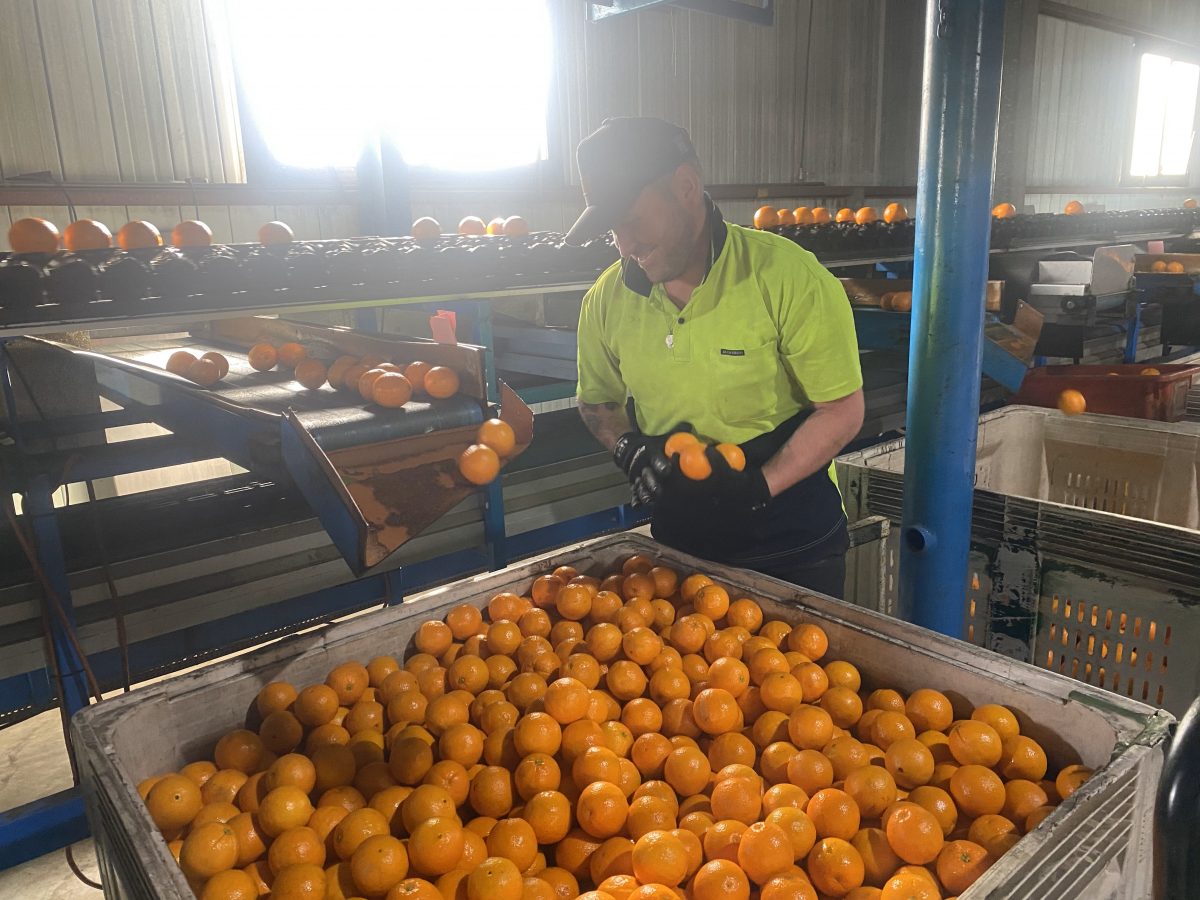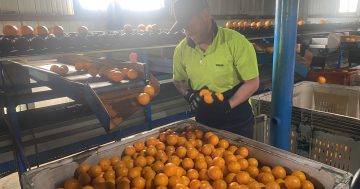
A worker sorting oranges at fruit packaging company Rivaland. Photo: Supplied.
A major shortage of oranges coming out of the United States’ key growing region in Florida, is unlikely to drive up the cost of orange juice for Australian consumers, but could present potential fresh opportunities for Australian growers, a Riverina producer says.
Griffith and District Citrus Growers’ chairman and head of Redbelly Citrus, Vito Mancini, told Region he expected the current shortage of fruit available in the US to create frozen orange juice concentrate (FOJC), and the effect it was having on the international futures market, was unlikely to have a major effect on the Riverina and Australia’s citrus industry more generally.
The US citrus producing powerhouse state of Florida is suffering a major outbreak of citrus greening disease (Huanglongbing), as it also faces severe weather extremes that have decimated the frozen orange juice concentrate market that it leads.
Mr Mancini said while the shortage had driven up prices for the FOJC and futures market, he did not expect it to have a big effect on consumer prices at the checkout in Australia.
But, producers in Australia, he said, may be able to capitalise on the shortage should they be able to access export markets, as most of Australia’s orange production went towards domestic fresh juice, or fresh fruit, and the nation’s citrus industry played a much smaller role in the frozen concentrate market.
“I think we’re not major exporters of concentrate – when you look at places like Brazil and Florida, and even China’s increasing their citrus production and export, I think Australian producers have bigger concerns about things like energy, and fertiliser costs, and labour costs,” he said.
“I mean, when you look at the global export market, and we’ve got a minimum labour cost of say $40 to $50 an hour for pickers, it’s very hard to compete with some of these overseas exporters – it might be different if we were back at $30 to $32 an hour.”
Mr Mancini also said that while the latest federal budget, released on Tuesday night, had indicated some positive signs for regional and rural communities, increases to levies on agricultural transport and biosecurity measures were “not fantastic”.
He said citrus producers had been hoping for some relief through increased importer levies, rather than taxes on the domestic industry, as well as more support for farmers to improve their resilience to climate change, especially in the wake of major hailstorms in 2022 that affected some 60 per cent of the nation’s citrus crop.
Mr Mancini said the ageing workforce in the industry was also an issue, and in the wake of those storms, he had spoken to farmers who were more than 70 years old who had not seen such storms before, and some were now not planning for succession, but planning to simply sell up.
He said he was also concerned at the seeming lack of actual planning and support for better managing water resources, and as the Murray-Darling Basin Plan entered its 10th year, the latest federal budget showed politicians were not planning for “what our country, and our industry needs”.
“It’d be great to get to a point where they were willing to say, ‘This is where we stand on this issue’, and they hold to it, instead of changing their minds and policies, but really, it just gets you disillusioned in the long-term, and feels like things just keep ticking from one challenge to the next.”








